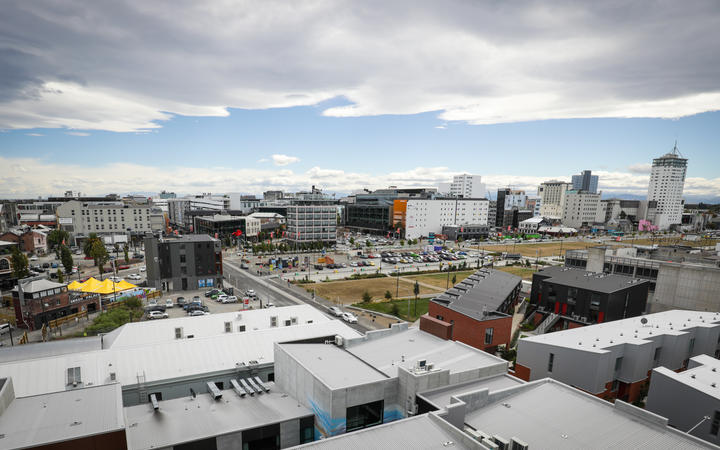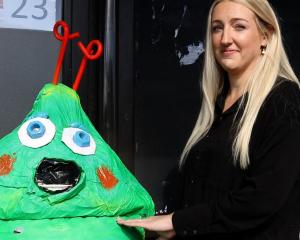
Academics and activists say construction of a new airport and rebuilding a city in concrete and steel simply don't square with ambitions to become carbon neutral.
The council set out four goals in its draft climate change strategy 2021.
It wanted net zero emissions by 2045, to understand and prepare for impacts of climate change, transition to a low emission economy, and be guardians of the environment and taonga.
Generation Zero's Elliott Hughes was not impressed by the language.
"I think I would some it up as being full of policies that are feel goods, rather than actually substantive," he said.
The council was not saying how it could achieve net zero emissions, Hughes said.
"What we wanted to see was the council commit to setting some interim signposts or steps that would say, this is where we expect emissions to start reducing, this is what levels we expect them to be in 2030, [or] this is the pathway to that net zero target.
"That was really lacking."
Transport was by far Christchurch's biggest carbon emitter.
Hughes said it was an area where the city council should work more closely with the Canterbury Regional Council (Environment Canterbury or ECan for short).
The region could learn some lessons from Auckland Council's unitary plan, he said.
"I don't necessarily think we need to move to a unitary council model to solve these. But we do need to think very seriously about; are we collaborating properly? Are we having those good conversations?"
The council's draft plan also wanted to better prepare for the impacts of climate change.

One council in the lower North Island was leading the thinking on who would be harmed, which included families on low incomes, those who did not speak English as a first language, those with poor internet, and people that did not own homes.
"I think that Porirua has really started to develop a very strong social vulnerability index with Massey [University], with the environmental health research team there," Hayward said.
Tarras airport plan 'most jarring'
Christchurch City Council is a majority shareholder of Christchurch Airport, which has proposed a new airport in Tarras, central Otago.
Hayward said the proposal was the "most jarring example" of the council's lack of "joined up thinking" about climate change.
"It is a distraction at the moment from my perspective, and from the perspective of many experts from the core business we have to do, which is to reduce our emissions and actually reduce travel overall that is dependent on carbon," she said.
But it was not just aviation.
Structural engineer Andy Buchanan said the city's rebuild and other planned construction projects were hugely carbon intensive.
"Most of the commercial and industrial buildings in Christchurch are made of steel and concrete," Buchanan said.
"Concrete is the biggest problem because when you make cement, you have to put limestone into a kiln and you have to heat it up and you end up with carbon-dioxide coming from the burning of the fossil fuel, and you end up with just as much again coming from the limestone."
Steel manufacturing was another serious polluter, and Buchanan believed low-carbon wood needs to be better embraced.
The Christchurch City Council ended public hearings on its draft climate plan last week, and officials are now considering their feedback.
A final decision will be made later this year.













